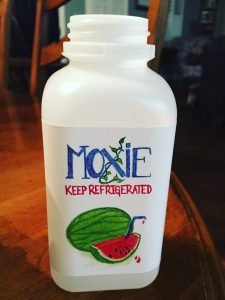
Note to editors/producers: Drs. Amy Ellis and Kristi Crowe-White are only available 9 to 11 a.m. Wednesday, Dec. 7, and 2 to 2:30 p.m. Friday, Dec. 9, for interviews this week.
TUSCALOOSA, Ala. — University of Alabama researchers soon will launch a study that looks at watermelon juice as a way to reduce heart disease.
Dr. Kristi Crowe-White and Dr. Amy Ellis, researchers in the College of Human Environmental Sciences’ department of human nutrition and hospitality management, are recruiting subjects for a 10-week study to see how watermelon affects blood vessel function.
The researchers believe that several natural ingredients in watermelon — lycopene, citrulline, arginine, glutamine and ascorbic acid — will act in synergy to decrease arterial stiffness and oxidative stress.
Arterial stiffness is an early independent risk factor for cardiovascular disease and cardiovascular events like heart attack and stroke. As people get older, the arteries get stiffer, more rigid and less able to dilate, Ellis said.
Oxidative stress also increases with age because the body is not able to compensate, and people’s diet typically is lacking in needed antioxidants. Oxidative stress is one of the underlying causes of all chronic disease, so when the level is high, if a person has a genetic predisposition for a chronic disease, that’s when the manifestation will occur, Crowe-White said.
“Our goal is to reduce the risks of these future cardiovascular events, but since we are both dietitians, we’re interested in doing this through a food-first approach versus just another pill or medication,” Ellis said. “If there are natural ingredients in this food that could be beneficial, why not try that first.”
Study participants need to be postmenopausal African-American or European-American women ages 55 to 69 who do not smoke or have high blood pressure, diabetes, liver disease or kidney disease. The first four weeks will involve study participants drinking either 100 percent watermelon juice or a placebo twice a day.
At the end of the four weeks, there will be a two-week washout period where neither beverage is consumed. In the next four weeks, participants will drink the opposite of what they had in the beginning of the study. Vascular and blood measures will be assessed at the beginning and end of each four-week period. Participants are eligible for compensation up to $100.
Participant screening will take place from now until Jan. 13. The study begins Feb. 1. For more information, women may call 844/348-7057.
Contact
Kim Eaton, UA media relations, 205/348-8325 or kkeaton@ur.ua.edu
Source
Dr. Kristi Crowe-White, 205/348-6173 or kcrowe@ches.ua.edu; Dr. Amy Ellis, 205/348-8128 or aellis@ches.ua.edu